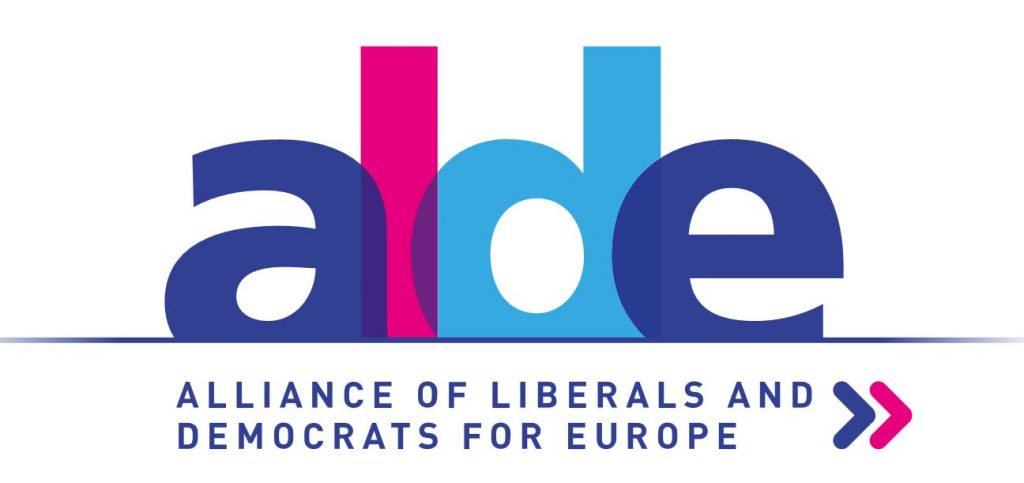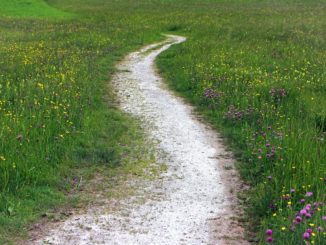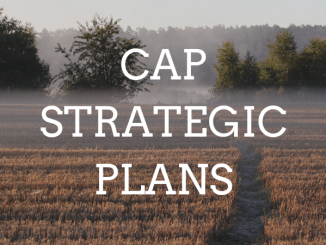By Louise Kelleher
It’s not easy to see through the spin in politics. Luckily the Institute for European Environmental Policy (IEEP) has done the job for us, combing through the manifestoes of the main groups in the European Parliament to weed out the empty promises and scrutinize the proposals. First up in the series is the Alliance of Liberals and Democrats for Europe (ALDE). The IEEP sought to assess ALDE’s commitments on sustainability issues by comparing with the group’s 2014 manifesto. Next the IEEP looked at how the 2019 manifesto stacks up against the recommendations of its own Think 2030 report, and against the EU’s international commitments. It parses the manifesto for compliance with the European Environment Agency’s 7th Environmental Action Programme (EAP) and asks what the group plans to do about the failed targets flagged in the EEA’s Environmental Indicator Report in November 2018. So how did ALDE do on agricultural policy?
CAP Reform Slips Down the Agenda
ALDE’s manifesto cites CAP reform as an “essential step” to achieving sustainability goals. The group is opposed to a renationalization of agricultural policy. It calls for the promotion of “alternative and environmentally friendly” agricultural methods and refers to plans for a “substantial reform and rethink of agricultural subsidies” – although it stops short of sketching out a detailed proposal. The IEEP approves of a ban on the use of cohesion funds for projects not aligned with the Paris agreement. In its analysis it notes that CAP reform seems to have slipped down ALDE’s agenda since the 2014 manifesto, which set out what the IEEP considered an “ambitious and specific” agenda for CAP reform.
The manifesto falls short of the Think 2030 recommendations on prosperity. ALDE agrees that the EU budget should only back projects that support the EU’s climate and energy objectives, but makes no reference to the issue of consumption, or to the remuneration of farmers for the provision of public goods. While sustainable trade, sustainable growth, and the need to move to a more resource-efficient, circular economy are all name-checked, the manifesto has nothing new to add to the conversation. It makes no reference to the bioeconomy.
Issues of health and food systems are framed in terms of food security. Aside from the need to combat antimicrobial resistance, the manifesto has nothing to say about the consumption of animal products. This ignores the EEA’s animal-based protein indicator – an EAP target now considered unlikely to be met by 2020. ALDE’s call for a “healthy planet for our children” is not backed up by any concrete proposals. In this sense the manifesto lags behind the Think 2030 recommendations on wellbeing. It ignores EAP targets on air quality and noise pollution, and makes no mention of the need for a just transition.
Economic Value for Natural Capital
ALDE makes the right noises on biodiversity loss, acknowledging the need to work together on nature and the environment. The manifesto makes no reference to the UN Convention on Biological Diversity however. Instead it recommends an “international Paris Agreement on biodiversity”. The IEEP questions what would make a new biodiversity agreement more likely to be enforced than the current CBD, and how it would build on existing commitments such as the Aichi Biodiversity Targets. It contrasts ALDE’s proposal with its own Think2030 paper on halting biodiversity decline by 2030, in which the IEEP calls for improved implementation and delivery mechanisms, and advocates for making biodiversity conservation a more inclusive movement for citizens and other stakeholders.
The IEEP is disappointed with ALDE’s commitments to protecting, conserving and enhancing the Union’s natural capital, which is one of the priority objectives of the EAP. With the 2020 targets on protected species, protected habitats, and the abundance and distribution of selected species all on track to be missed, it’s not enough to pay lip service to nature and biodiversity protection without putting forward concrete proposals. ALDE wants to “establish an economic value for natural capital and ecosystem services” – an idea the IEEP considers “concerning”. Of course natural capital contributes to human welfare and wellbeing, but it must be evaluated using a variety of sustainability indicators and units of measurement, stresses the IEEP. In this respect the manifesto falls short of the Think 2030 recommendations on Nature. Similarly the importance of water is acknowledged, but without a proposal. ALDE has nothing to say about soil and land degradation. The manifesto makes no reference to the nutrient balance on agricultural land despite the fact that the nitrogen indicator is another EAP target unlikely to be met by 2020.
Think Global, Invest Local
ALDE’s manifesto comes out strongly in seeking to align environmental measures with the Paris Agreement and the UN’s Sustainable Development Goals (SDGs). It proposes specific policies for investment in environmental issues and technological innovation. The IEEP approves of ALDE’s focus on decarbonisation of Europe’s energy, transport and infrastructure. Comparing favourably here with the Think 2030 recommendations on prosperity, the manifesto offers a range of proposals relating to energy and transport that would make use of or build on existing instruments. The IEEP commends ALDE’s call for a 55% target reduction in greenhouse gases by 2030 compared to 1990 levels. Investments in smart infrastructure and R&D in low emission technologies, among other policies, would help facilitate these targets.
But while the manifesto advocates an environmental leadership role for the EU at global level, it stays silent on environmental governance here at home. The manifesto has no overarching sustainability plan for Europe. In contrast to the Think 2030 recommendations on governance, it lacks a coherent plan for sustainability as part of a post-2020 strategy. The IEEP chides the absence of a “credible pathway” to make the SDGs a reality and to implement the Paris agreement. There is a lack of joined-up thinking when it comes to integrating environmental requirements and considerations into other policies. Unsurprisingly perhaps in view of ALDE’s core values, an analysis of the language used in the manifesto indicates a prioritizing of the market and the economy over environmental policy.
Download the IEEP report on ALDE: IEEP manifesto analysis – ALDE
This is the first in a series of IEEP analyses of European party manifestoes through an environmental lens. Watch this space for Part II: the IEEP’s take on the Party of European Socialists (PES) manifesto.






